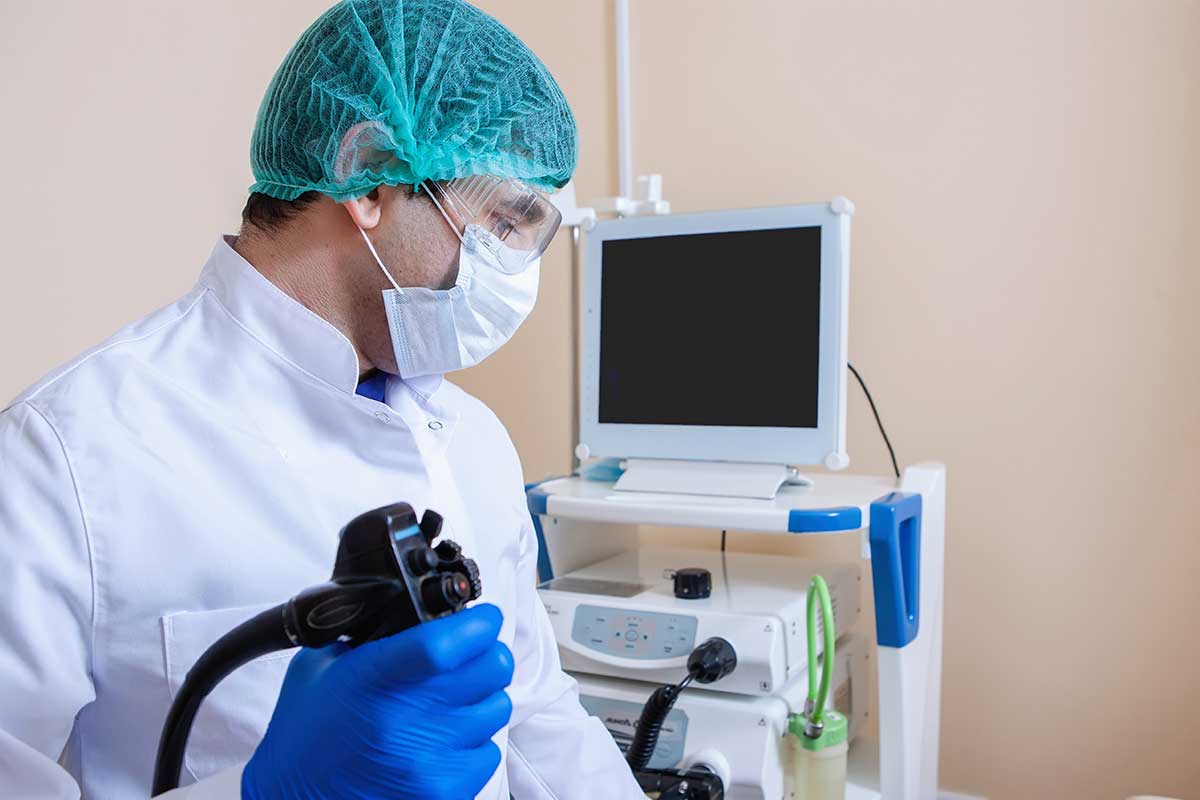
26
Apr
How Far Does a Flexible Sigmoidoscopy Go? Understanding the Procedure

A flexible sigmoidoscopy is a medical procedure that is commonly used to detect problems in the colon and rectum. This procedure is typically performed by a gastroenterologist or a colorectal surgeon, and it involves the use of a flexible tube with a light and camera attached to it, known as a sigmoidoscope. The sigmoidoscope is inserted through the rectum and into the colon, allowing the doctor to examine the lining of the colon and rectum.
In this blog, we will explore the flexible sigmoidoscopy procedure and its limitations in detecting problems in the colon and rectum. We will discuss the benefits and limitations of this procedure, including its scope of examination, how it differs from a colonoscopy, and when it is recommended. By the end of this article, you will have a better understanding of how a flexible sigmoidoscopy is performed and what it can and cannot detect. Whether you are preparing for this procedure or are simply interested in learning more, this blog will provide you with valuable information to help you make informed decisions about your health.
What is a Flexible Sigmoidoscopy and how is it performed?
A diagnostic procedure called a flexible sigmoidoscopy enables medical professionals to inspect the rectum and lower part of the colon. It is performed using a flexible tube called a sigmoidoscope, which is inserted into the rectum and guided through the colon. The sigmoidoscope is equipped with a light and camera that allow the doctor to see the inside of the colon and rectum on a monitor. The procedure usually takes less than 30 minutes to complete, and patients are typically able to return home on the same day.
The primary difference between a flexible sigmoidoscopy and a colonoscopy is the portion of the colon that is examined. A sigmoidoscopy focuses on the rectum and lower portion of the colon, while a colonoscopy examines the entire colon. A flexible sigmoidoscopy is often recommended for patients who are experiencing symptoms such as rectal bleeding, abdominal pain, or changes in bowel habits. It can also be used as a screening tool for patients who are at an increased risk for colon cancer.
The Reach of a Flexible Sigmoidoscopy: How far can it go?
One of the primary benefits of flexible sigmoidoscopy is that it allows doctors to examine a specific portion of the colon and rectum. The sigmoidoscope can typically reach up to 60 centimeters into the colon, which allows doctors to examine the rectum and sigmoid colon. However, it does not examine the entire colon, and there are limitations to its reach.
The sigmoidoscope is inserted into the rectum and maneuvered through the sigmoid colon during a flexible sigmoidoscopy. The sigmoid colon is the S-shaped portion of the colon that connects the descending colon to the rectum. The sigmoidoscope can typically reach up to the splenic flexure, which is the point where the colon turns to the left, just below the spleen. However, it does not reach the transverse colon or the ascending colon, which are located further up in the abdomen.
Benefits and Limitations of Flexible Sigmoidoscopy
A flexible sigmoidoscopy offers several benefits as a diagnostic tool. It is a minimally invasive procedure that can be performed quickly and without the need for sedation. It is also less expensive and carries fewer risks than a colonoscopy. Additionally, it can be used to detect a variety of conditions, including inflammatory bowel disease, polyps, and cancer.
However, there are also limitations to the procedure. Because it only examines a portion of the colon and rectum, it is not a comprehensive screening tool for colon cancer. Additionally, if polyps or other abnormalities are found during the procedure, a colonoscopy may be needed to examine the entire colon.
Conclusion
In conclusion, a flexible sigmoidoscopy is a valuable diagnostic tool that can be used to detect a variety of conditions in the colon and rectum. It allows doctors to examine a specific portion of the colon and rectum and offers several benefits over a colonoscopy, including lower cost and fewer risks. However, it is important to be aware of its limitations and to discuss with your doctor which screening method is best for you.
Therefore, if you are in the New York area and are in need of flexible sigmoidoscopy, Triborough GI offers a wide range of gastroenterological services, including flexible sigmoidoscopy, colonoscopy, and other diagnostic procedures. Our team of experienced gastroenterologists and colorectal surgeons is committed to providing high-quality care in a comfortable and supportive environment.
We use the latest technology and techniques to ensure accurate and timely diagnosis, and we work closely with our patients to develop individualized treatment plans that meet their unique needs. Contact us today to schedule a consultation and learn more about our services.

